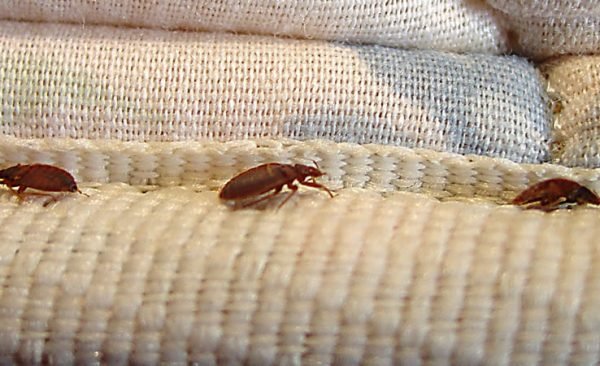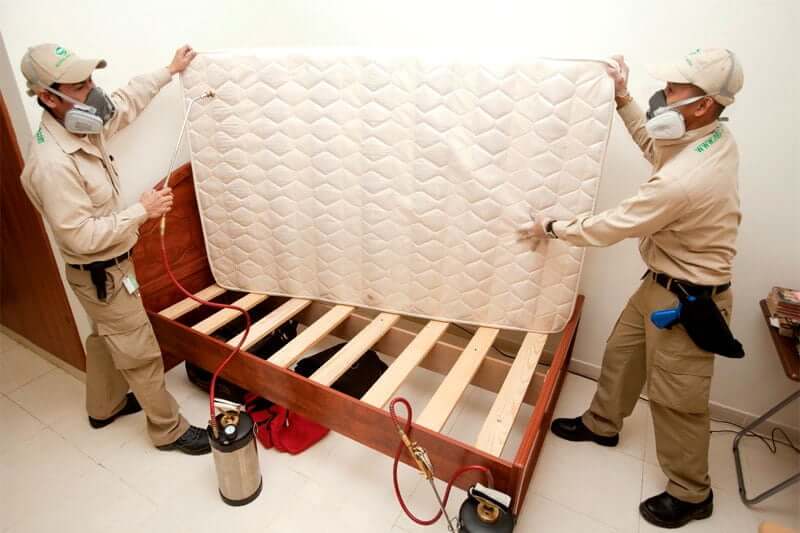Bed Bug Eggs Removal: Expert Solutions to Prevent Reinfestation
Bed Bug Eggs Removal: Expert Solutions to Prevent Reinfestation
Blog Article
Get Enlightened Regarding the Sorts Of Bug Control Methods and Their Advantages for Property Owners
Comprehending the various insect control techniques available to property owners is crucial for efficient bug monitoring. From chemical and organic approaches to cultural and mechanical techniques, each approach presents unique advantages that can dramatically affect both wellness and ecological security. Homeowners who are well-informed can make tactical selections that not only address insect issues but also boost the general high quality of their living environment. As we explore these techniques even more, it comes to be clear that the decision-making process includes more than simply prompt outcomes; it touches on long-lasting sustainability and wellness. What factors should influence these crucial decisions?
Chemical Pest Control Methods
Chemical pest control techniques are an essential element of integrated parasite administration methods for homeowners seeking effective services to pest problems. These techniques entail the application of chemical substances created to remove or prevent pests that endanger personal effects, wellness, and convenience. Typical chemicals used consist of pesticides, fungicides, herbicides, and rodenticides, each customized to target specific bugs.
The primary benefit of chemical insect control is its fast efficiency; numerous formulations give immediate outcomes, lowering pest populations considerably in a short time. In addition, advances in chemical solutions have actually caused products that are much more environmentally friendly and have lower poisoning levels for non-target microorganisms when applied properly.

Biological Bug Control Techniques
Natural parasite control approaches have actually gained prominence as home owners look for safer and much more sustainable alternatives to traditional chemical methods. Organic parasite control strategies make use of natural predators, parasites, or virus to take care of insect populaces efficiently. This method is not only environmentally friendly yet additionally reduces the danger of injury to non-target varieties, consisting of beneficial pests and wild animals.
Among one of the most typical organic control approaches includes introducing natural predators into the setting. Ladybugs can be used to regulate aphid populaces, while nematodes target soil-dwelling insects like grubs. Furthermore, parasitoids-- microorganisms that survive on or within a host-- can be utilized to manage details pest types by laying eggs inside them, ultimately bring about their death.
Another technique is using biopesticides, which are derived from all-natural products such as plants, minerals, or bacteria (bed bug exterminator). These items can successfully target parasites while posturing minimal threat to people and pets. On the whole, organic bug control methods supply homeowners with a reliable methods of parasite administration that lines up with eco-friendly principles, advertising a much healthier living atmosphere while reducing dependence on synthetic chemicals
Mechanical Bug Control Approaches
Mechanical pest control techniques incorporate a range of techniques that literally stop or get rid of pests without using chemicals. These techniques are particularly valuable for homeowners seeking eco-friendly choices while making sure the security of their home.
One common method is the usage of obstacles, such as displays, catches, and nets, which avoid insects from getting in homes or particular locations. Mounting window screens can properly maintain insects out, while utilizing physical barriers around yards can deter bigger bugs like deer or rabbits. Furthermore, mechanical catches designed for rodents can record and get rid of these bugs without the need for poisonous materials.
An additional efficient approach entails making use of brooms and vacuums to get rid of pests directly from surfaces. Regular cleansing and upkeep can substantially minimize pest populaces by getting rid of food resources and hiding places. Employing gadgets like ultrasonic bug repellents can deter various insects with noise waves that are undesirable to them but faint to humans.
Social Parasite Control Practices
Social insect control methods concentrate on modifying the setting and monitoring strategies to create conditions that are much less for pest invasions. These practices are essential in preserving a balanced ecological community and reducing the dependence on chemical interventions. By changing agricultural methods, house owners can efficiently hinder insects while promoting plant health.
One common method includes crop turning, which disrupts the life cycles of parasites by transforming the types of plants expanded in a specific area (bed bug exterminator). This not just decreases pest populations however likewise enhances dirt health. Additionally, intercropping-- planting diverse crops in proximity-- can perplex insects and decrease their ability to locate their preferred host plants
Water management is one more critical facet of social methods. Appropriate irrigation strategies can prevent standing water, which offers as a breeding ground for mosquitoes and various other pests. Maintaining tidiness in and around the home, such as frequently eliminating debris and food waste, can dramatically decrease parasite tourist attraction.
Integrating these social practices right into a comprehensive insect management approach enables home owners to produce an environment that normally prevents pests, thus enhancing the performance of other control methods while promoting lasting horticulture and landscape design.

Integrated Parasite Administration Approaches
Integrated Pest Management (IPM) represents a holistic technique that combines various methods to properly handle pest populaces while lessening environmental effect. This methodology incorporates biological, cultural, physical, and chemical practices to accomplish lasting pest control. click here to find out more By examining pest populaces and their all-natural adversaries, IPM highlights tracking and identifying parasites prior to applying control procedures.
One of the core concepts of IPM is making use of thresholds, which establish the level of pest activity that warrants treatment. This makes certain that treatments are used just when required, decreasing the dependence on chemical pesticides. Organic control techniques, such as important link introducing natural killers or parasites, operate in combination with cultural methods like plant rotation and habitat manipulation to interrupt pest life cycles.
Furthermore, IPM motivates making use of least-toxic chemical options when intervention is necessary, focusing on products that pose minimal risk to non-target microorganisms and the setting. For property owners, taking on IPM comes close to not only improves the effectiveness of bug administration yet likewise promotes a healthier living atmosphere, promoting biodiversity and decreasing chemical direct exposure. Ultimately, IPM encourages property owners to make informed choices that balance insect control with eco-friendly duty.
Verdict
Finally, recognizing the various bug control approaches empowers home owners to make informed decisions relating to pest monitoring. Each approach-- chemical, biological, mechanical, cultural, and incorporated parasite management-- offers distinct benefits that deal with various requirements and preferences. By selecting suitable approaches, homeowners can effectively manage pest populations while lessening health and wellness risks and environmental influences. This enlightened strategy adds to a healthier living setting, advertising general health for pets and families alike.
Comprehending the numerous parasite control approaches available to property owners is crucial for efficient parasite administration.Chemical parasite control approaches are an essential part of integrated bug management techniques for home owners looking for effective remedies to pest problems. Generally, biological bug control techniques offer homeowners with an effective means of parasite management that straightens with eco-friendly principles, promoting rat control a healthier living atmosphere while lowering reliance on synthetic chemicals.
Social pest control methods concentrate on changing the setting and monitoring methods to produce conditions that are much less conducive to pest problems.In verdict, understanding the various parasite control approaches equips house owners to make enlightened choices relating to pest administration.
Report this page